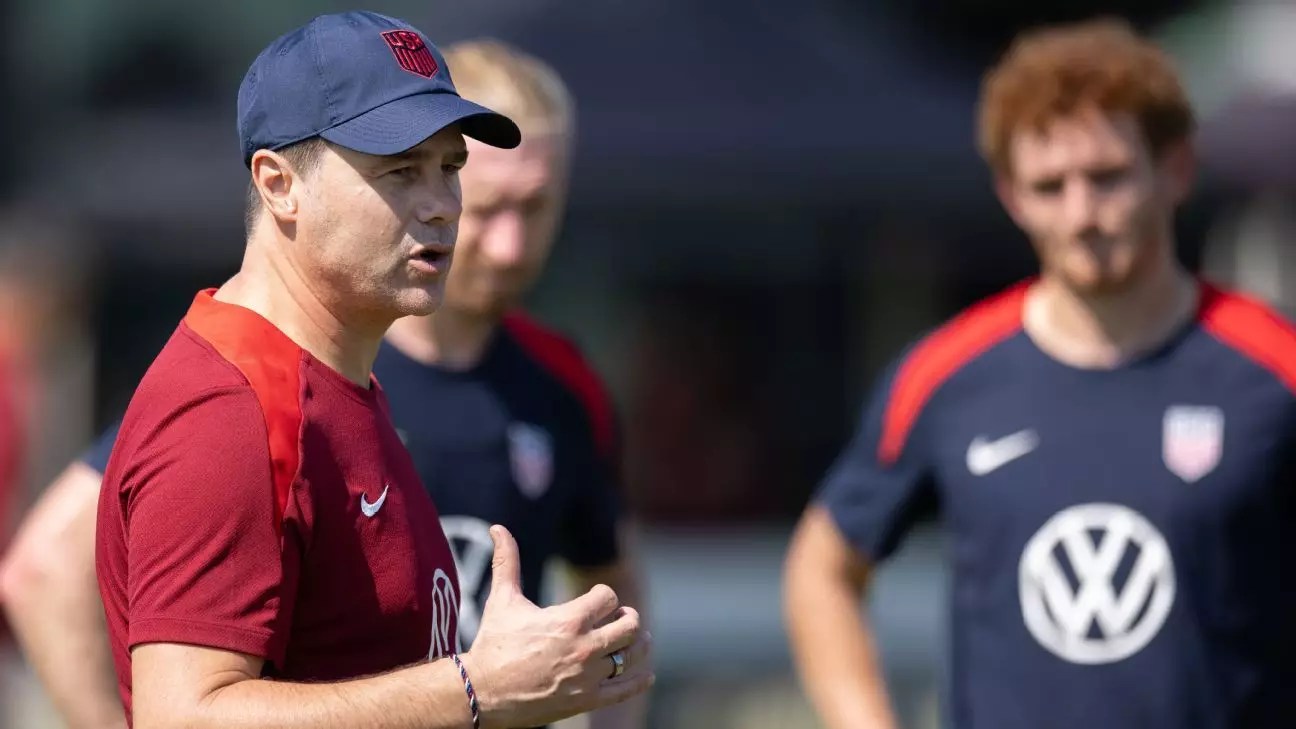The landscape of professional soccer in the United States is rapidly evolving, and with it, the expectations and opportunities for players in Major League Soccer (MLS) are transforming. Recently, U.S. Men’s National Team (USMNT) manager Mauricio Pochettino has made headlines by emphasizing the importance of MLS players in his selection process. His statements not only reflect a shift in the perception of domestic players but also signify a deeper commitment to the growth and competitiveness of U.S. soccer on the international stage.
During a press conference leading up to a critical match against Jamaica in the Concacaf Nations League, Pochettino addressed the unique challenges and capabilities of players plying their trade in the MLS. His openness to selecting MLS players suggests a paradigm shift for coaches who may have previously undervalued domestic leagues in comparison to European counterparts. “I’m going to be happy to have most of them playing here in the MLS,” he stated, acknowledging that the league’s physicality and competitiveness are on par with more storied league systems globally.
This perspective is particularly significant in the context of the U.S. soccer culture, which has often been criticized for favoring European talent almost exclusively. Pochettino’s recognition of the merits of MLS players can encourage a more inclusive environment that ultimately benefits the national team. By allowing players in the domestic league the opportunity to compete on the international stage, Pochettino is not only elevating the profile of MLS but also inspiring potential players who aspire to represent their country.
A defining feature of Pochettino’s managerial ethos has been his willingness to establish high expectations within his squads. “We need to increase the expectation,” he remarked, signaling a proactive approach to cultivating a culture of competitiveness. By demanding more from his players, Pochettino guides them to view each match as an opportunity for growth rather than merely a friendly fixture. This distinction is crucial in elevating the mindset of players who, in the past, might have settled for mediocrity in non-competitive games.
The recognition that matches against formidable opponents translate to genuine growth is crucial in a country where soccer is still carving out its identity. Pochettino understands the pressure surrounding the sport in the United States and embraces the responsibility to foster a team environment where ambition matches that of the country itself.
In his discussions about selecting players, Pochettino emphasized the importance of performance over their league status. His approach champions meritocracy—a principle that tends to escalate competition among players, regardless of where they play. “If they perform and they convince us, they show the quality,” he said, reiterating that potential candidates for the national team would be judged purely on their contributions during critical games.
This perspective opens the door for players who may have been overlooked in favor of those in more glamorous leagues. It encourages a pathway for players coming through the ranks in the MLS, offering hope that dedication and effort can ultimately lead to reward, regardless of the club’s international reputation.
As the U.S. navigates its path within the competitive world of soccer, Mauricio Pochettino’s vision for the national team is both refreshing and necessary. By valuing the talent present in MLS and unapologetically raising the bar for expectations, he is helping to forge a new legacy for U.S. soccer, one where players can feel assured that their hard work and skill will be recognized on the world stage.
The ongoing commitment to building a competitive sports culture is paramount as the U.S. prepares for future tournaments. With a focus on inclusion, performance, and accountability, the USMNT stands at the precipice of a new era—one where the contributions of every player, regardless of their league, are acknowledged and rewarded. As fans look to the future, hope springs eternal that this new approach will yield a stronger, more competitive national team poised for success on the global stage.


Leave a Reply